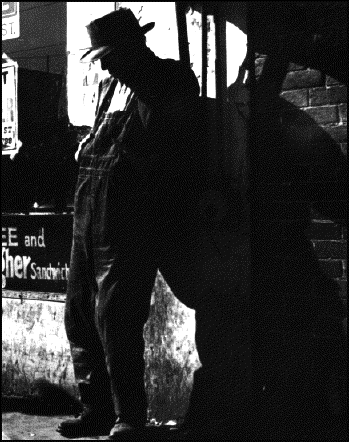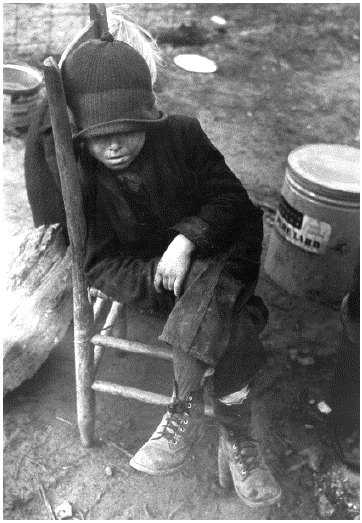In the Great Depression
Freedom from Fear
David M. Kennedy
(Oxford)

Security was the key to the New Deal: "job security, life-cycle security, financial security, market security,"
however it might be defined, achieving security was the leitmotif of virtually everything the New Deal attempted.
However, the original Social Security Act did carry a bias. Farm laborers, domestic servants, and workers in establishments with fewer than ten employees were omitted, even though FDR had promised to Francis Perkins, his Secretary of Labor, "We are going to make a country in which no one is left out."
I usually don't think of reading history as in any way comparable to, say, a good Alan Furst novel --- but this David Kennedy is a diligent scholar and a jim-dandy writer, and he has come up with a treatise that I was reluctant to lay aside for something as relatively unimportant as sleeping or eating.
For example, his word-pictures. Roosevelt's earliest campaigns were managed by an erstwhile newspaper reporter who --- using the Roosevelt name --- carried on
a vast correspondence, much of it cranked out over his forged signature from what amounted to a letter-writing factory run by his shrewd and faithful operative, a crater-eyed, gnarled, wheezing homunculus named Louis McHenry Howe.
Or, this, on New York State politics:
Roosevelt's political nemesis in state politics had been Tammany Hall, the ultimate, ball-jointed, air-cushioned, precision-tooled, self-oiling, thousand-kilowatt urban political machine.
 What Kennedy does not do, or does rarely, is the tedious "accounting school" of historical writing, much favored by the likes of Martin Gilbert (or is it Gilbert Martin?). This is a rare slip into that territory, one that is sure to glaze the eyes: "Only one-third as many automobiles rolled off the assembly lines in 1933 as in 1929, a slowdown that included commensurate shrinkage in other heavy industries. Iron and steel production declined by 60-percent from pre-Crash levels. Machine-tool makers cut their output by nearly two-thirds..." etc etc blah blah.
What Kennedy does not do, or does rarely, is the tedious "accounting school" of historical writing, much favored by the likes of Martin Gilbert (or is it Gilbert Martin?). This is a rare slip into that territory, one that is sure to glaze the eyes: "Only one-third as many automobiles rolled off the assembly lines in 1933 as in 1929, a slowdown that included commensurate shrinkage in other heavy industries. Iron and steel production declined by 60-percent from pre-Crash levels. Machine-tool makers cut their output by nearly two-thirds..." etc etc blah blah.
Kennedy also comes up with some treasures that will delight Depressionophiles like me. One is Lorena Hickok, that cigar-smoking, profane ex-AP reporter (rumored by those who don't understand the way women talked and wrote and lived in the 1930s to be lover to Eleanor Roosevelt). Hickok was woman who could, according to Kennedy, "smoke, drink, play poker and cuss as well as any of her male colleagues, and she could write better than most of them."
For two years, starting in July of 1933, Hickok toured the country as the eyes and ears of the New Deal. She filed regular reports with Harry Hopkins, head of the WPA, later the Works Projects Administration. The quotes offered in the book are often moving, and offer an direct and honest view of the country in the midst of financial and social disaster. For example, Hickok found the soft-coal miners of the Appalachians to be in a most pitiable state:
"Some of them have been starving for eight years. I was told there are children in West Virginia who never tasted milk ... I was told that five babies has died of starvation in the last ten days. Dysentery is so common that nobody says much about it. 'We begin losing our babies with dysentery in September'" one of Hickok's informants casually remarked.